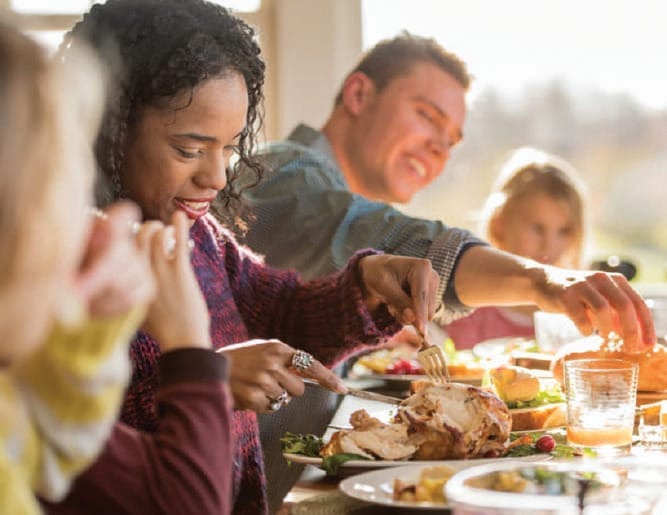Slow down before plowing through the holiday hors d’oeuvres or finishing off that overfilled plate of comfort food. An approach called mindful eating could just help you enjoy it even more and increase well-being.
Paying close attention to food and how it makes your body feel also can help you make better decisions about what, why, and the amount to eat.
“Mindful eating starts before the meal,” said registered dietitian Carrie Dennett. She suggests “checking in” with your body and pondering questions such as, “Am I hungry?” or “Why am I wanting to eat?”
Rather than eating on autopilot, take it slow during a meal. Focus and enjoy a food’s smell, taste, and texture. “I mean really, really notice your food,” said Dennett, author of “Healthy for Your Life: A Holistic Approach to Optimal Wellness.”
When preparing to attend a food-filled holiday gathering, try to arrive pleasantly hungry but not ravenous. Otherwise, you may eat quickly and become overfull before your stomach has time to tell your brain you are satisfied, which can take 20 minutes, Dennett said.
At Thanksgiving, Dennett said, she forgoes more routine foods and opts instead for stuffing or special tasty foods she doesn’t eat at other times of the year. Whether it’s a hearty wedge of pumpkin pie or a single sugar cookie, focus on each bite. Take time chewing and savoring.
“Slow down and tune in to that eating experience,” Notte said, and remember it’s OK if every meal is not perfectly balanced during the holidays.
Another holiday suggestion: Start with half as much food on a plate as you normally would. Then, later in the meal, check in with your body to see if you really want more.
When it comes to alcohol, make a conscious decision about whether and how much to drink. Too much alcohol can make it more difficult to practice mindful eating. “Our bodies really crave balance when it comes to eating,” she said. “Mindful eating helps our body be where it wants to be naturally.”
For Additional InformationThe American Heart Association
heart.org
